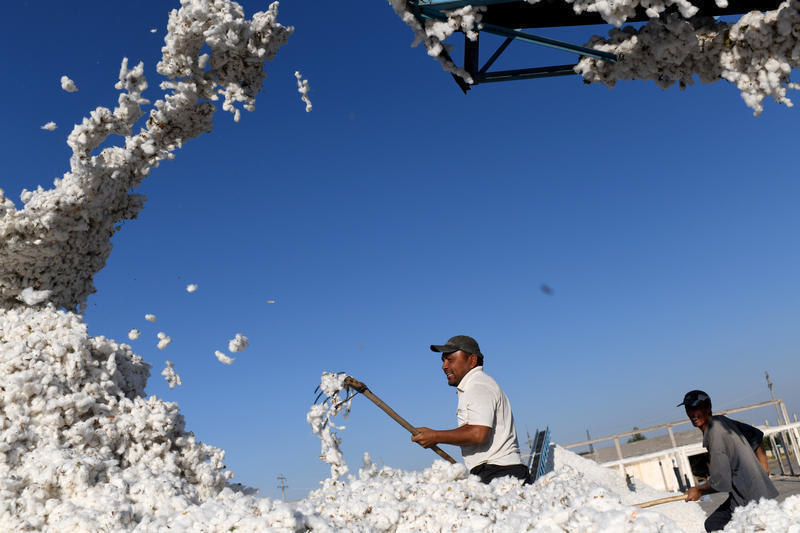Bettina Sengling, a German journalist, has been following Uzbekistan’s most prominent human rights activists. In a recent article, published by the German magazine STERN, she reports on forced and child labor in Uzbekistan’s cotton industry and the challenges faced by human rights activists in their courageous fight to end these practices.
Based on the article by Bettina Sengling, published by STERN in the print issue 46 (November 2017). Photos: Yuri Kozyrev (@yuri.kozyrev)
 It’s early morning, just before six o’clock. Darkness still hangs over the village, the streets are empty. Elena Urlayeva may not be a young woman any more, but she certainly does not lack energy. “We have to take advantage of the moment now,” she says. Urlayeva is a human rights activist in Uzbekistan.
It’s early morning, just before six o’clock. Darkness still hangs over the village, the streets are empty. Elena Urlayeva may not be a young woman any more, but she certainly does not lack energy. “We have to take advantage of the moment now,” she says. Urlayeva is a human rights activist in Uzbekistan.
Bettina Sengling, a German journalist, has been following Uzbekistan’s most prominent human rights activists. In a recent article, published by the German magazine STERN, she reports on forced and child labor in Uzbekistan’s cotton industry and the challenges faced by human rights activists in their courageous fight to end these practices.
“How do you live here?”, Urlayeva asks the men in the barrack. And the men answer. They are annoyed, which is understandable. They’re exhausted because they have not been home for weeks. Originally employed at an oil factory hundreds of kilometers away, they have now been called upon to pick cotton. Their accommodation has no laundry facilities, toilets are outside, there are only sheets on the floor to sleep on and food is prepared in a makeshift kitchen. “Not even animals live like this!”, Urlayeva notes.
 In Uzbekistan, nobody likes to talk about cotton. Certainly not about the harvest. It’s a taboo topic, a whispered subject. Secrets and lies are built around it. As if the fluffy flakes came from a secret factory. Or as if they should not be there at all.
In Uzbekistan, nobody likes to talk about cotton. Certainly not about the harvest. It’s a taboo topic, a whispered subject. Secrets and lies are built around it. As if the fluffy flakes came from a secret factory. Or as if they should not be there at all.
In fact, Uzbekistan is one of the largest cotton producers and exporters in the world, selling the raw material mainly to China, Bangladesh and Pakistan. Cotton is grown on almost half of Uzbekistan’s agricultural land. And yet, only the Uzbek elite is benefiting from the cotton production: the income ends up in an opaque fund, controlled by senior officials, while the state budget does not benefit from the cotton exports at all.
An authoritarian and backward system has emerged: tens of thousands of farmers plant cotton against their will and hundreds of thousands of pickers work against their will in the fields. Some for days, others for weeks, including overnight stays in barracks, poorly accommodated, fed on tiny wages. Most of the pickers are public sector employees: tax officials and postmen, teachers and doctors. Many are workers from state enterprises, even employees of the national bank, as well as students and musicians from cultural institutions. Those who do not want to pick cotton themselves pay others to work in their place. Anyone who refuses to participate in the harvest is threatened with dismissal or other sanctions. “The entire country works for the cotton industry” says Umida Niyazova, human rights activist and Director of the Uzbek-Forum for Human Rights in Berlin.
Based on the article by Bettina Sengling, published by STERN in issue 46 (November 2017).





